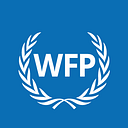WFP’s EvalXchange celebrates fourth festival of learning
How do we tackle tough topics such as evaluation in constrained contexts, country capacity strengthening and gender inclusion?
In its fourth edition, EvalXchange 2024, organised by the Office of Evaluation of the United Nations World Food Programme, brought together UN and government partners, civil society organizations, academia and evaluation consultants in search of answers.
“This year’s EvalXchange continued its focus on overcoming challenges in evaluating complex, contemporary themes, but with more practical, field-based perspectives on the solutions, and a deep dive into the approaches and methods used,” said WFP Director of Evaluation, Anne-Claire Luzot.
The first session on evaluation in constrained environments held on 11 April highlighted that access and trust are key barriers in evaluations in conflict settings. There are, however, several ways to mitigate this, including the use of technology with context-specific approaches, and involving critical stakeholders in different ways in the evaluation.
In the second session on country capacity strengthening (CCS), held on 16 April, participants heard how a clear definition of the scope, and impact pathway, are important factors for evaluating change.
Panellists also elaborated on a framework to identify the dimensions of analysis, and an array of qualitative methods when evaluating whether a CCS intervention has contributed to change, acknowledging that it continues to be a challenge requiring innovation.
The final session on integrating gender in evaluation (23 April) reiterated that evaluators have to be deliberate about including gender in evaluation design, data collection, and assessment of outcomes.
Panellists shared interesting examples of frameworks looking at intersectionality, how to approach subjects that don’t have a gender component, or see gender as a priority, and the importance of surfacing unintended results.
EvalXchange was launched during the Covid-19 pandemic in 2020 to learn, reflect and improve on evaluation practice during a time that called for the evaluation community to adapt, and be more innovative in its approaches.
“It’s interesting to see how the evaluation practice has evolved since then said Sarah Longford, WFP Deputy Director in the Office of Evaluation.”A post-Covid world has brought dramatic shifts, and we’re confronted with deeper and more complex development and humanitarian challenges. EvalXchange 2024 clearly reflected not only the challenges, but also the innovative methods and approaches evaluators now have in their toolkit.”
The EvalXchange trio of events hosted 463 participants from 81 countries and 161 organizations.
The individual event recordings are available on the EvalXchange website.
